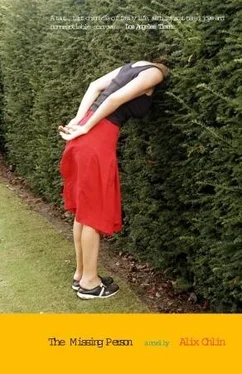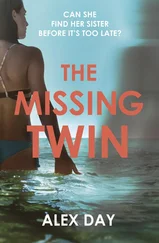Just after two, Angus stood up and stretched, which somehow brought a hush over the room. He spoke quietly, as if to himself, though he clearly knew everybody was watching him. “You know what makes me happy?” he said, then walked over to the window and pulled the duct-taped curtains aside to look out into the empty Albuquerque night. “Human extinction. We’ll be gone before long. We’ll ruin ourselves. No matter what anybody in this room does.”
“Dude, you’re depressing me,” Stan said, sprawled on the floor.
Angus shook his head. I watched him idly, feeling flushed and a little dizzy from the gin. “It’s not depressing,” he said. “It’s a real consolation. When I can’t sleep at night, that’s what I think about. We’re a blip on the screen, except you know what? There is no screen. We’re the ones who invented blips and screens, and soon enough they’ll be gone too. And thank God.”
“That’s a rosy view,” I said. “Why even bother then?”
“Realism isn’t the same thing as paralysis,” Angus said, smiling around the room at everyone. “Besides, we might as well have a good time. What we need to do is take away the blip and the screen for a little while. What we need is a major event.”
“No shit,” Berto said.
Wylie leaned forward, still holding the baby. “A paradigm shift,” he said.
“A military action,” Stan said.
“A photo op,” Berto said.
Angus gazed at me with his bright blue eyes. “What did you say at the beginning of the summer?”
“Me? About what?”
“About Albuquerque.”
Tired and drunk, I frowned at him. I felt like I was being put on the spot, and didn’t like his showboating. “That it’s hot in summer?”
He shook his head.
“Full of chain restaurants? Hard to spell, for people who don’t live here? Located in the middle of nowhere?”
“Exactly,” Angus said.
“I have no idea what you’re talking about,” I told him.
Neither did Stan and Berto, judging from their blank expressions. But Wylie was nodding already, his mouth set in the straight line of concentration which for him, I was starting to learn, expressed greater happiness than a smile.
Irina said, “When I first came here, I thought it was the end of the world. In a good way. Like Mars.”
“It’s not the end of the world,” I said, slurring the words a little, “but it definitely feels like it.”
“Not enough for me,” Angus said
“Are you kidding? Albuquerque’s the capital of nowhere.” My tone made Stan and Berto exchange glances. “I mean, and that’s part of its scruffy charm,” I added lamely.
“She’s right,” Irina said.
“Well, it’s time to really make it the capital of nowhere. Give people a little time to think.”
“Time to think,” Wylie said. From his lack of scowl and his rigid posture, it seemed like he loved whatever ideas this conversation was giving him.
“Lynn,” Angus said, “you’re a genius.”
“If you say so,” I said, and passed out.
When I woke up everybody was gone, even Sledge. I couldn’t imagine how I’d slept through the night, in a room full of drunk and stinking people, but the throb in my head gave me a clue. There was such a thing as too much gin. I opened the front door and gazed out at the capital of nowhere. Grocery-store circulars and plastic bags rustled in tree branches. The hood of the Caprice was splattered with bird shit. My stomach was uneasy, and the taste in my mouth was sour. The heat was an insult to the body. Everything was brown and dead, and I couldn’t imagine hating anything as much as August in Albuquerque. I wanted to know where everybody was and why I’d been abandoned. I was in a very bad mood.
I was about to shut the door when a taxi — a rare enough sight anywhere in Albuquerque — pulled up in front of the apartment building. Then Daphne Michaelson got out of the cab and paid the driver, looking crisp and unfazed by the heat. She was wearing a navy-blue dress with a white belt, white stockings, and open-toed shoes. Her nails and lips were lacquered in red. Not a single hair was out of place, and when she climbed the stairs up to the landing I could smell the distinct flowers of Chanel No. 5.
She smiled at me, brightly, and said, “I’m looking for Wylie Fleming. The phone book says he lives here.”
“He isn’t here,” I said, nervously conscious of my own morning-after stink.
“You’re the other one!” she said, in the cheery tone of a Girl Scout leader addressing her charges. “I remember your visits to my office.”
She stood in the doorway, wrinkling her powdered nose, and gave the filthy room a careful inspection that culminated in a head-to-toe look at me. Glancing back at the sleeping bags and tool racks, she raised her tweezed eyebrows, and I realized that at some point I’d stopped paying attention to the weirdness of the place.
“Can I get you something to drink?” I said.
“No, thank you,” she said. “I can’t stay long. I have many appointments.” She laughed again, a trilling and artificial laugh that sounded rehearsed.
“If you say so,” I said.
She opened her white leather handbag, took out a compact, and checked her perfect makeup in the mirror, then smacked her lips together and smiled, satisfied. I felt like I was in an old movie, something starring Lana Turner. Maybe a young Frank Sinatra would come looking for her.
“Mrs. Michaelson,” I said, “does your family know you’re here?”
It was the wrong thing to say. Daphne glared at me, and to compose herself she took out the compact and reapplied her lipstick, giving it a disturbing thickness. “I am occasionally allowed to chaperone myself,” she said.
“All right.”
“Even at times to dress myself and call taxis. Like a grown woman. Which, incidentally, I am.”
“I know you are. Listen, I’m sorry. What can I do for you? I’d offer you a seat, but, well, there aren’t any.”
“That’s quite all right,” she said with gracious hauteur. “I’ve come to discuss our problem of mutual interest. But we can do it standing.”
“Problem?”
“Problem, situation, what have you,” she said.
“What situation are you talking about?”
“My husband and your mother,” she said. “You think I didn’t know? There isn’t enough medication in the world. The question is what we will do about it. Now that you’re on my side we can do something. Once you came to my office, I knew you were on my side. Now, do you think you can get a gun?”
“You’re kidding.”
“Why would I?” she said. “Let me outline a few small plans.” She pulled a small black notebook from her bag and opened it to a page filled with looping, childish handwriting.
“Mrs. Michaelson,” I said, “I wanted to ask you about my father. Do you remember the things you said to me before? I felt like you were trying to tell me something.”
“This is not about your father,” she said.
“But did you ever see him with a woman with long dark hair? What about—”
“This is about David and that whore.”
It took me a second to register what this meant, and another second to figure out how to respond. “Um, please don’t call my mother a whore,” I said.
Daphne’s eyes flashed at me, and the notebook trembled in her hands. “Drunken travel-agent whore,” she said, drawing out each syllable with evident relish.
“Okay, that’s it.” I gestured toward the landing. “Time for you to go. I’d call you a cab, but we don’t have a phone here.”
“I’m not leaving.”
“Yes you are.”
I walked out onto the landing, as if to show her how, exactly, this might be accomplished, but she didn’t follow. I looked back to where she stood framed in the darkness of the apartment.
Читать дальше












